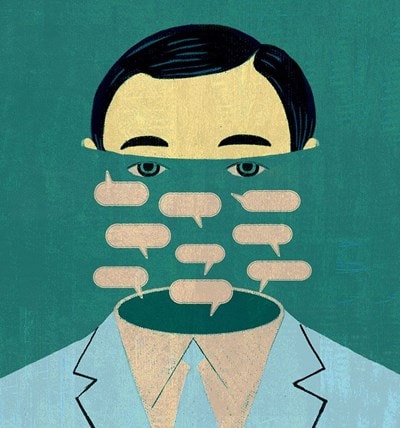Why should you turn off notifications on your phone?
We live in an age of disruption.Ping, you have a new message. Ping, you have a new email. Ping, you have a new Facebook friend request. Ping, you have a reminder. Ping, ping, ping... all day, all night. CThe cost of being disturbed is higher than we think.
A recent Gallop poll found that in the US, more than 50% of smartphone users keep their phones with them at all times. And more than 50% of respondents said they glance at their phones at least a few times an hour, and 11% said they check their phone screens every few minutes to see if there are any new notifications. This survey was conducted in the US, but in Vietnam, the situation seems to be not much different.
 |
| Thought interruptions are the enemy of productivity. |
If you look back at the history of technology, we don’t have a lot of content on our devices. Now we only have text, all sorts of notifications are text-based, from personal emails, to work emails, to text messages. And it’s not just phone notifications, it’s desktop notifications too. How many times have you had to stop what you were doing just to read a text message you just received or an email notification that just arrived? And of those, how many times have you switched to dealing with that notification, only to later realize that the task you were doing was more important than dealing with the notification?
At this point, it’s important to acknowledge that we’re in the midst of a “workflow interruption notification” economy. What is the real value of these notifications, under what conditions, and how do they consume our minds? A single “ping” may seem innocuous, but the accumulation of many of them clearly impacts our workflows and thoughts more than we realize, and of course, over time, these notifications have an effect and impact on many people’s lives.
A psychological study published in The Journal of Experimental Psychology shows the impact of notifications, even when you ignore them. In the study, subjects were asked to complete a task that involved tracking numbers from 1 to 9, and pressing a button every time a number changed, except for 3. The numbers changed at a rate of once every second, and the participants were measured on their reaction speed.
The respondents were also asked to put their phones aside and not touch them during the survey. During the survey, the surveyors occasionally called the phone numbers of the first group, sent text messages to the second group, but the third group did not contact their phones at all. The results showed that groups 1 and 2 made more mistakes and were less focused on their main tasks. The results were similar between the first group that received the calls and the second group that received text messages.
And finally, the survey also showed another factor: group 1 and group 2 were more stressed and frustrated than group 3.
So how do email notifications affect us? The default setting on most communication devices today is that we receive email notifications as soon as they arrive. Most of us leave our email apps running all day long.
You might wonder if we should set a default email notification for each type of email because we often receive extremely important emails that need to be dealt with immediately. But in reality, these types of emails are rare and the percentage of them that appear in your email stream is very low. Duke University recently worked with a medium-sized company to survey its employees about their email usage. The results showed that only about 12% of emails need to be read within 5 minutes. 11% of emails need to be read within the next few hours, and 17% of emails need to be read by the end of the day. 10% of emails need to be read by the end of the week, and 35% of emails don’t need to be touched. And each of these emails gets a pop-up notification on the user’s screen.
So what should we do? If you want to maximize your productivity and mental well-being, you should turn off the notification feature every time an email arrives. We should realize that emails are not created equal, not all emails are equally important and only a few of them are worth our attention.
According to PCWorld

